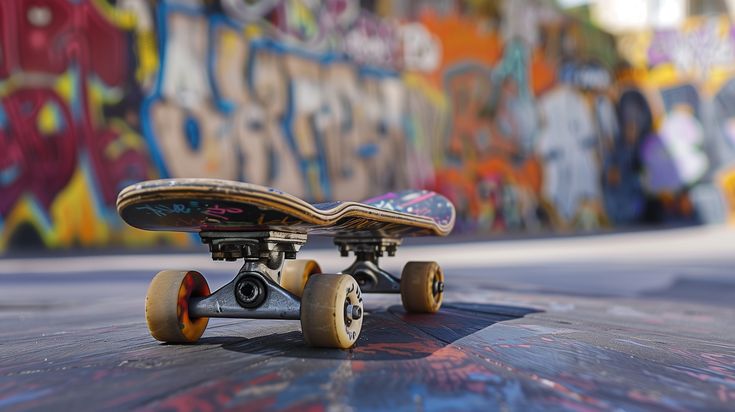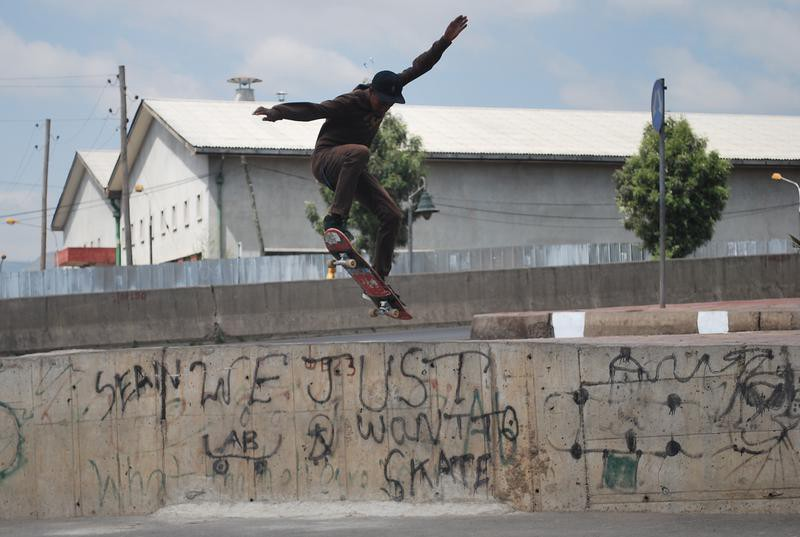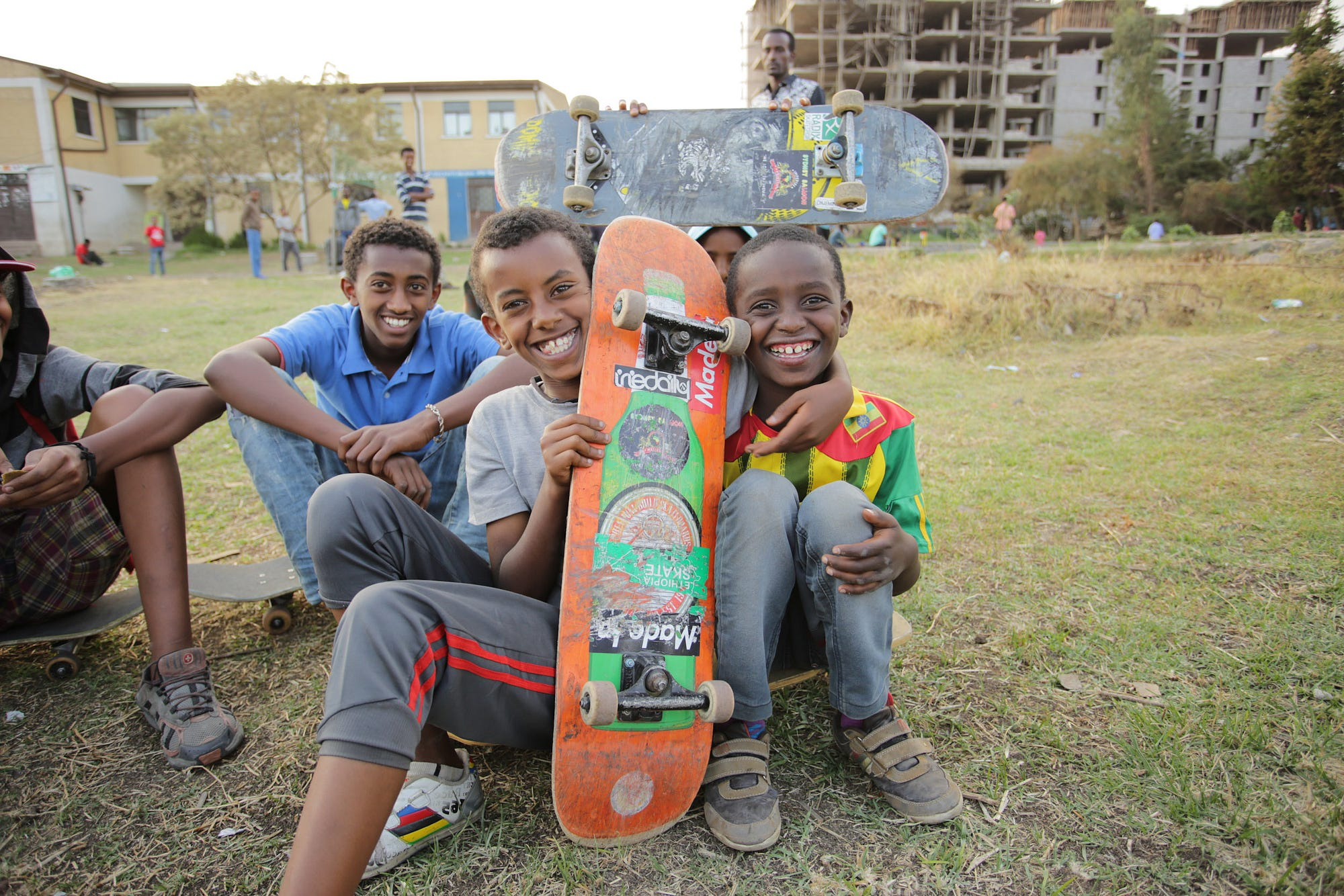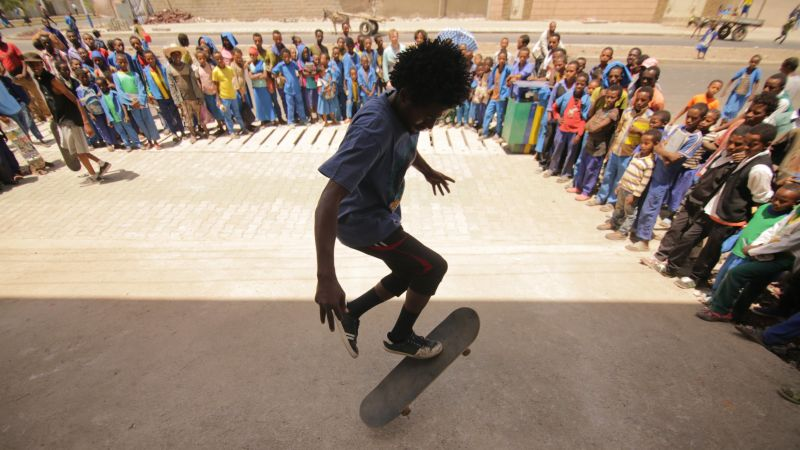Wheels of Change: How Africa’s Urban Youth Are Rolling into a New Culture

From Sidewalks to Subculture
Walk through the streets of Lagos, Nairobi, Accra, or Johannesburg, and you’ll notice something that grabs your attention — the slap of wheels on pavement, neon helmets flashing past, and groups of kids weaving through traffic like it’s second nature. What started out as a marginal hobby has become a full-blown youth phenomenon. Throughout Africa, roller skating, skateboarding, and inline sports are no longer Western imports. They're local, a way for young people to express themselves, push back a little, and carve out an identity.
It did not happen overnight. For years, skate culture in Africa lived in these small, devoted circles. Take Ghana — the Surf Ghana crew took skateboarding and turned it into a tool for youth empowerment. They built Accra's first ever skate park, and it's not just a skating spot. There is music, there is art, and plenty of room for brainstorming. On the other side of the continent in Nairobi, Kenya's Skateboarding Society is a social hotbed of all sorts of people from school kids to young professionals all looking for something a bit different from the daily routine. Rollerskaters in Nigeria roll underneath bridges and through plazas, picking up crowds and doing something half way between sport and street performance.

What really sets this movement apart? It’s running on pure energy, not big sponsorships or official support. Think early hip-hop or Afrobeat — it’s all grassroots. People borrow boards, build their own ramps, and just dive in. Social media gave skate culture a megaphone. One clip on TikTok or Instagram, one perfect trick against the chaos of the city, and suddenly the whole world catches a glimpse of this vibrant blend of fashion, music, and African street style.
And it is more than just sport. For a lot of young Africans, skating is about freedom. It’s a way to express yourself in cities where choices sometimes feel boxed in, and public spaces are either locked down or swallowed up by business. One skater in Lagos put it best in an interview with Pulse NG: “When I skate, I feel invisible but alive. It’s like we’re rewriting what our city looks like.”
Skating Through Barriers
Skate and roller sports are catching on fast in Africa, but let’s be real—getting wheels on the ground isn’t easy. Most cities still don’t have proper skate parks. Safe places to practice? Pretty rare. So, kids make do. They train on cracked sidewalks or in forgotten lots, piecing together ramps from old plywood and whatever metal they can find. Sometimes, local authorities don’t help either. They see big groups of skaters and think “trouble,” not “fun.”
But in all seriousness, this all just makes the scene more difficult and creative. Kids aren't holding out for anyone to break the path for them—they're breaking it themselves. In Ethiopia, there was a group known as Ethiopia Skate that didn't just talk about skating—they built the country's very first skate park in Addis Ababa with money raised online. Then they went on to engage further, going to young people who hardly stand a chance at something like this. Meanwhile, in Dakar, roller skating is the rhythm of the weekend. Whole streets turn into playgrounds. Parents show up, people snap photos, everyone wants a look.

There’s something else happening, too. Roller sports used to be a boys’ club, but not anymore. In Accra and Nairobi, women are taking over. Crews of all-female skaters roll out, providing everyone with a glimpse of assurance. Videos pop up online—women in hijab, women dressed in traditional garments, cruising city sidewalks. People watch and remark, "Yeah, that's what empowerment looks like."
And it's not just about skating. Fashion and music are right there with it. Skaters blend local prints with street style. Afrobeat and amapiano tracks blast from speakers and rack up their videos. Skating here isn't just something to do—it's a way of life, a style of movement, fashion, and storytelling.
The Future Rolls Forward
Skate and roller sports are catching fire with Africa’s urban youth, and honestly, it’s more than just a trend. There’s a whole creative economy bubbling up around it — one that blends art, fashion, community, and a real hunger for innovation. Local brands are popping up everywhere, making boards, skates, and clothes that actually work for African streets. These aren’t just tough enough to handle rough pavements; they look good too, showing off the bold style that’s everywhere among young people on the continent. In Lagos, designers team up with skaters to put together streetwear collections that feel alive — telling stories about movement, resistance, and everything in between. Over in Nairobi, young engineers are messing around with 3D-printed skate parts, trying out new sustainable materials to see what sticks.
And if you’re wondering where all this energy goes, just check out the pop-up events and skate festivals. In places like Kigali and Accra, weekend “skate jams” are the new thing — music blasting, people dancing, fashion on display, and crowds turning up not just for the sport, but for the party. Brands have noticed. Beverage companies, telecoms, fashion lines — they’re all lining up to sponsor, hoping to tap into that creative spark. Even tourism boards want in now; some are starting to hype up skateparks and roller clubs as part of their youth travel campaigns.
Governments are catching up too, bit by bit. Rwanda’s Car Free Day, where city streets open up for skaters and cyclists, has gotten other cities interested in trying the same. Ghana's Youth and Sports Ministry is working with community organizations to build small skateparks as youth centers. While South Africa's still churning out skaters and film-makers competing at the global level. It's a different shift — people now start to realize that sports that are youth-centered like these can actually drive social integration, create fresh business, and rock city life in a meaningful way.
But honestly, maybe the biggest shift isn’t about money or policy. It’s cultural. Skating is rewriting the script on what it means to be young, free, and fearless in Africa. It defies the idea that success comes from playing by the rulebook or opting for a stable profession. To most, skating is a means of blowing off steam — a reprieve from boredom, work stress, or too much screen time. It’s proof that joy and community don’t need a big budget, just determination and some open ground.
Social media only adds fuel. Clips of African skaters go viral, connecting scenes from Lagos to Nairobi and beyond. Skaters swap ideas online, plan meetups, even crowdfund new parks together. What used to feel like isolation online is now a network — a way to bring this rolling movement together across borders.

In the end, the wheels spinning across Africa’s streets stand for something bigger than just a sport. They are a witness to resilience, imagination, and vision. From shattered streets in Accra to windy boulevards in Dakar, youth are providing a new urban rhythm — one that's honest about the struggle but not despairing. Skating, in their hands, is a metaphor for the whole continent: keeping moving forward, staying flexible, and staying balanced, no matter what the bumpy road.
The future’s out there, rolling along — and Africa’s youth are driving.
You may also like...
Super Eagles Fury! Coach Eric Chelle Slammed Over Shocking $130K Salary Demand!
)
Super Eagles head coach Eric Chelle's demands for a $130,000 monthly salary and extensive benefits have ignited a major ...
Premier League Immortal! James Milner Shatters Appearance Record, Klopp Hails Legend!

Football icon James Milner has surpassed Gareth Barry's Premier League appearance record, making his 654th outing at age...
Starfleet Shockwave: Fans Missed Key Detail in 'Deep Space Nine' Icon's 'Starfleet Academy' Return!

Starfleet Academy's latest episode features the long-awaited return of Jake Sisko, honoring his legendary father, Captai...
Rhaenyra's Destiny: 'House of the Dragon' Hints at Shocking Game of Thrones Finale Twist!

The 'House of the Dragon' Season 3 teaser hints at a dark path for Rhaenyra, suggesting she may descend into madness. He...
Amidah Lateef Unveils Shocking Truth About Nigerian University Hostel Crisis!

Many university students are forced to live off-campus due to limited hostel spaces, facing daily commutes, financial bu...
African Development Soars: Eswatini Hails Ethiopia's Ambitious Mega Projects

The Kingdom of Eswatini has lauded Ethiopia's significant strides in large-scale development projects, particularly high...
West African Tensions Mount: Ghana Drags Togo to Arbitration Over Maritime Borders

Ghana has initiated international arbitration under UNCLOS to settle its long-standing maritime boundary dispute with To...
Indian AI Arena Ignites: Sarvam Unleashes Indus AI Chat App in Fierce Market Battle

Sarvam, an Indian AI startup, has launched its Indus chat app, powered by its 105-billion-parameter large language model...
